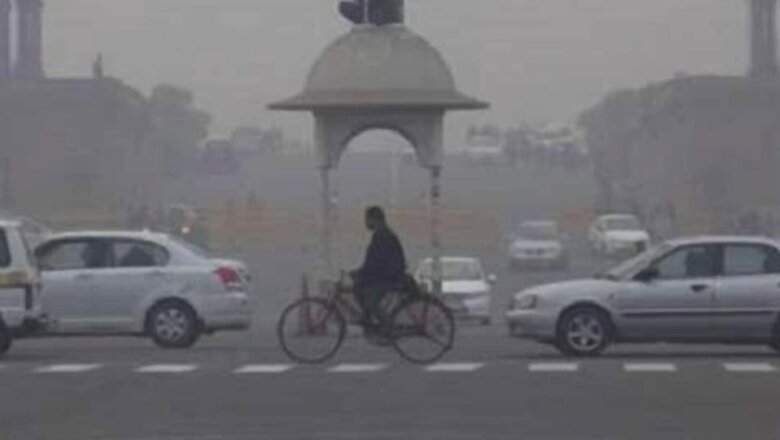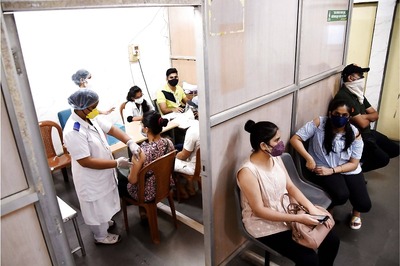
views
New Delhi: The air quality in the national capital was recorded in the moderate' category on Saturday with negligible impact of stubble burning, authorities said. According to the Ministry of Earth Sciences' forecast body SAFAR, Delhi's air quality index (AQI) was recorded at 173 and is likely to remain in the moderate category for the next three days.
Delhi's AQI is in the moderate category. In presence of local dry weather and moderate wind, local dust emission enhances PM10. Additional dust input from desert areas via transport is likely. Impact of stubble burning is negligible. The overall AQI will remain moderate for next three days, SAFAR said.
Meanwhile, the number of farm fires incidents reduced on Saturday, with 542 incidents recorded, out of which, Punjab saw 369 fires, Haryana 136, Uttar Pradesh and Rajasthan had seven each and Madhya Pradesh recorded 23 fires, according to the data from the Indian Agricultural Research Institute (IARI). The number is down from Friday's 1,288 incidents of crop residue burning in the six states.
A total of 7,790 burning events were detected in the six states, between September 15 and October 22, which are distributed as 5,438, 1,508, 634, 0, 45 and 165 in Punjab, Haryana, UP, Delhi, Rajasthan and MP, respectively. Overall, the total burning events recorded in the six states is 50.5 per cent less than in 2020 till date.
Punjab recorded 56.3 per cent reduction, Haryana recorded 3.7 per cent increase, UP recorded 8.2 per cent increase, Delhi recorded 100 per cent reduction, Rajasthan recorded 88.5 per cent reduction and MP recorded 80.0 per cent reduction, in the current season than in 2020, IARI said. Stubble burning in the neighbouring states significantly contributes to the air pollution in Delhi.
The active fire events due to rice residue burning were monitored using satellite remote sensing, following the new Standard Protocol for Estimation of Crop Residue Burning Fire Events using Satellite Data. Punjab and Haryana attract attention during the paddy harvesting season in October and November.
Farmers set their fields on fire to quickly clear off the crop residue before cultivating wheat and potato. It is one of the main reasons for the alarming spike in pollution in Delhi-NCR.
Read all the Latest News , Breaking News and IPL 2022 Live Updates here.



















Comments
0 comment